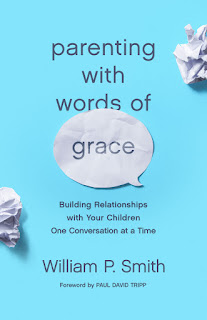Ideas not instructions
Psychologist and author of books on teenage guidance, Lisa Damour, gave reasons in The New York Times of February 18 as to why so many young people reject parents’ solutions to their problems.
It’s usually, she wrote, because the parents are not giving them what they’re really looking for:
A sounding board.
Empathy.
A vote of confidence.
Ideas not instructions.
Often, she says, it’s listening and understanding what teenagers most want or need.
The spiritual underpinnings for this approach are set out by William P. Smith in a recent book, Parenting with Words of Grace: Building Relationships with Your Children One Conversation at a Time (Crossway, 2019).
As you’d probably guess, Smith is a counselor, pastor, and parent, and I couldn’t do better than quote ideas from his own introduction.
Relationships are dynamic, he writes. Ever changing. Each conversation you have alters the relationship, nudging it in one direction or another. The innumerable conversations you have with your kids are daily opportunities to invite them to enjoy building a satisfying, long-term relationship with you.
Smith explains that this kind of relationship models what they could have with the God who longs to communicate with people so much that he gave us the gift of language in the first place.
Parenting doesn’t work, Smith continues. It woos. Parenting requires us to invest time and energy without knowing for sure what the outcome will be.
And just when those of us who are parents wish we had read this book two, ten, twenty years ago, foreword writer, Paul David Tripp, sweeps to our side with much-needed comfort.
Tripp says we need the grace to admit that our words as parents reveal how much we still need the moment-by-moment rescue and forgiveness of God’s grace.
“We all need to remember that no one gives grace more lovingly and patiently than the parent who confesses how much he needs it himself.”
Tripp also suggests we remember that “God never calls us to do something without enabling us to do it, and he never sends us somewhere without going with us.”
Now, that’s a bedtime story for all of us. And one that shouldn’t be confined to bringing up adolescents.
Human relationships test all of us, and most of us favor ideas above instructions when we have to get our thinking straight.
Human relationships test all of us, and most of us favor ideas above instructions when we have to get our thinking straight.

.jpg)

Comments
Post a Comment